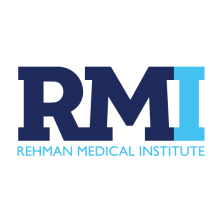Tuberculosis (TB) is an infection caused by the bacterium, Mycobacterium tuberculosis.TB bacteria, most commonly, attack the lungs; however, they can involve any part of the body such as the kidneys, eyes, joints, spine, and brain. TB is a curable disease but can be fatal, if not detected and treated properly.
Tuberculosis is of two types: latent and active. In the former, TB bacteria stay in your body but in a dormant state and do not cause any harm or symptoms. Nonetheless, treatment is sometimes necessary in order to eliminate any risk of future conversion to active TB.
In active TB, as the name suggests, the bacteria cause active disease of the body organ(s).
Symptoms
The following are common symptoms of active TB:
- Fever, especially with an evening rise in temperature
- Prolonged cough that exceeds three (or more) weeks
- Sputum with or without blood
- Chest pain, that may increase with breathing or coughing
- Lack of appetite
- Weight loss
- Night sweats
- Tiredness
Diagnosis
In the attempts to diagnose TB, your doctor will ask for the following tests.
- Physical examination: your doctor will examine you in detail for any physical signs of TB.
- Clinical imaging tests: these may include chest X-ray and, in some cases, CT scan of chest.
- Tuberculin skin test: reaction to an injection given in your skin could be indicative of exposure to TB bacteria.
- Sputum test: this is the most important test to diagnose active TB. Your doctor will advise you to submit early morning sputum samples to the laboratory to check for the presence of TB bacteria.
- Bronchoscopy: occasionally, it may be required to collect samples from the lungs using a scope under light sedation.
- Blood tests: routine blood tests such as complete blood count (CBC), liver function tests and creatinine may be necessary, especially before starting treatment.
Treatment
Tuberculosis is primarily treated with antibiotics that need to be taken regularly for at least 6 months as per your doctor’s instructions. Anti TB drugs are usually safe but you should contact your doctor immediately if you develop any side effects related to your anti TB drugs. In very few cases, severe or life-threatening complications may occur during the course of the disease and surgical intervention may be needed.










